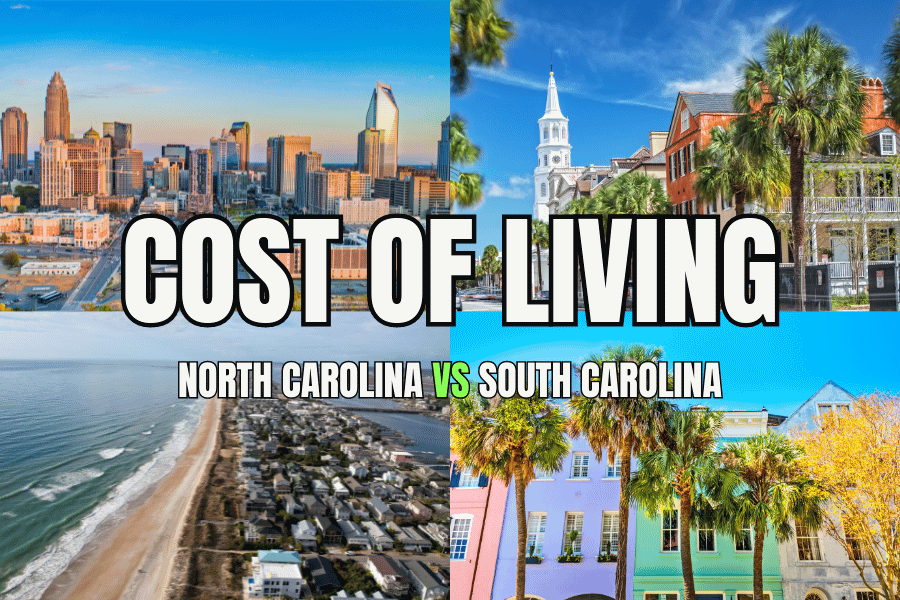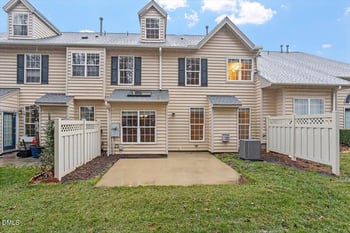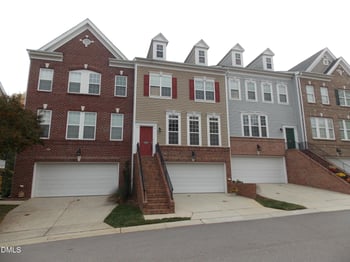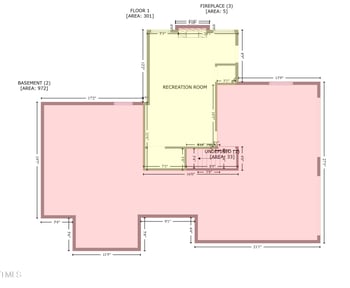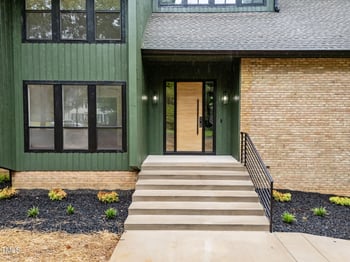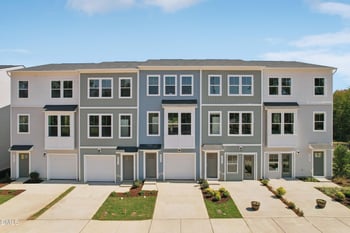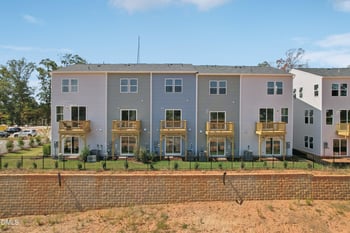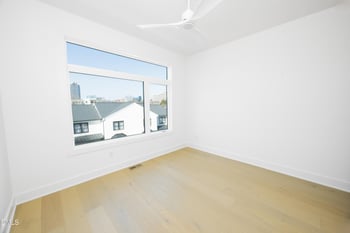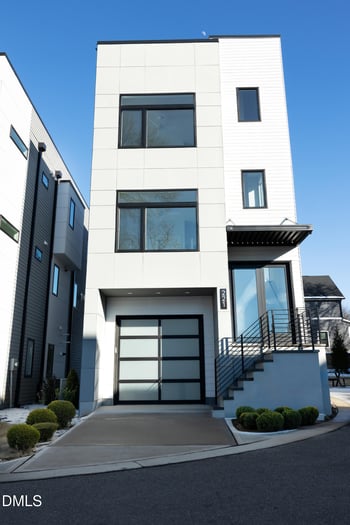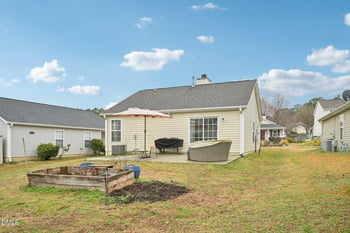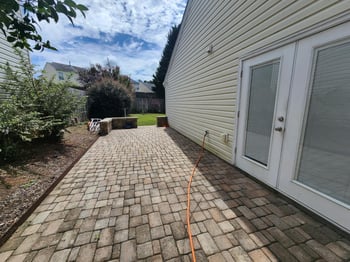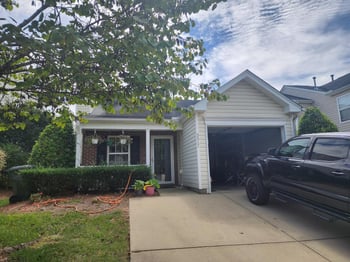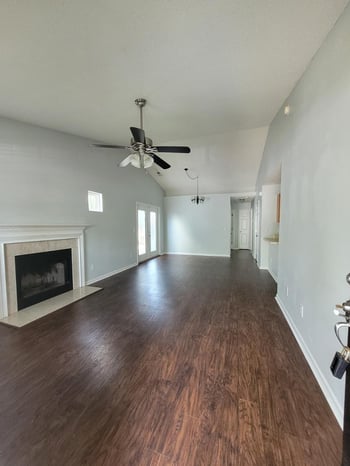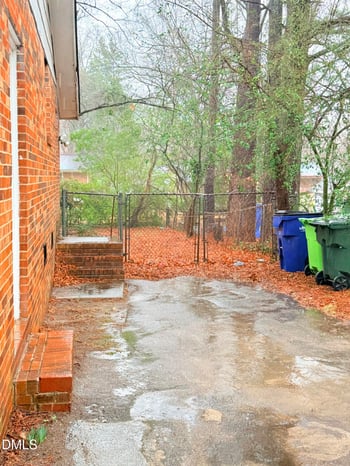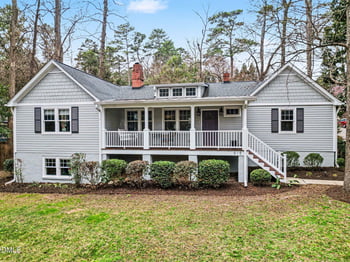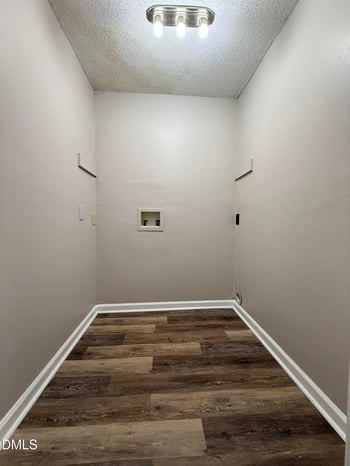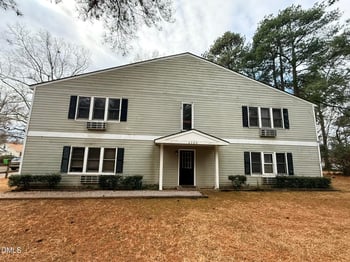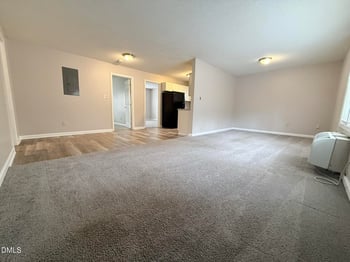With inflation at 2.4% as of March 2025, Americans worry about nationwide price hikes for necessities across the board. It's tempting to jump right into a new neighborhood when you move, but you need to consider if you can afford your new lifestyle.
In this guide, we're covering the cost of living in Raleigh, North Carolina, with data from 2023 that covers prices and trends for all major necessities. These categories give you a better idea of what you’ll need to budget to live comfortably in Raleigh.
Cost of Living in Raleigh
North Carolina is affordable, and the cost of living in Raleigh is less than the national average. Costs for goods and services are generally below average, in addition to lower tax rates. On the flip side, the median household income in Raleigh is more than the national median.
Let's see how the cost of living in Raleigh compares to national data:
Income
Income data from Raleigh residents is higher than national rates. The median income in Raleigh is $49,948, which is $6,659 more than the national median of $43,289. According to the U.S. Bureau of Labor Statistics (BLS), the unemployment rate for people 16 years and older in North Carolina is 3.7%, while the national unemployment rate is 4.1%.
However, Raleigh’s poverty rate is 11.4%, which is 0.3% higher than the national rate. These rates are likely so similar because North Carolina’s minimum wage is $7.25 — the same as the federal minimum wage.
Raleigh is one-third of the Research Triangle, which is made up of Raleigh, Durham, and Chapel Hill. The Research Triangle is named due to the geographic locations of Duke University, UNC-Chapel Hill, and NC State. Because of these universities, Raleigh has abundant tech and research jobs. In fact, the Wall Street Journal recently ranked Raleigh as the fifth hottest job market in America.
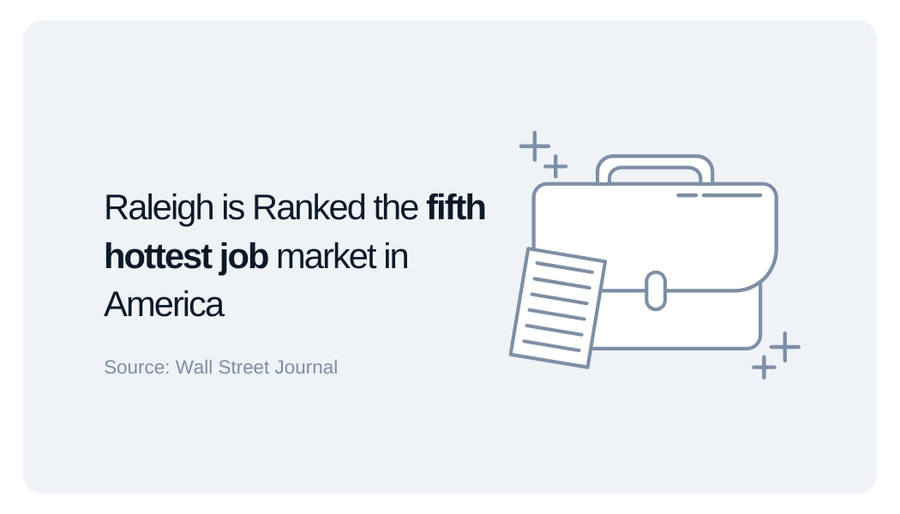
Housing Costs
Raleigh real estate trends show that home values are rising. The U.S. Census reports that the median home value in Raleigh is $377,800, compared to the national median of $303,400.
However, monthly housing costs for homes with mortgages are cheaper than the national median. Renting in Raleigh is $120 more expensive compared to national median costs, so you might favor buying a home if you want to keep monthly costs down.
.png)
Taxes
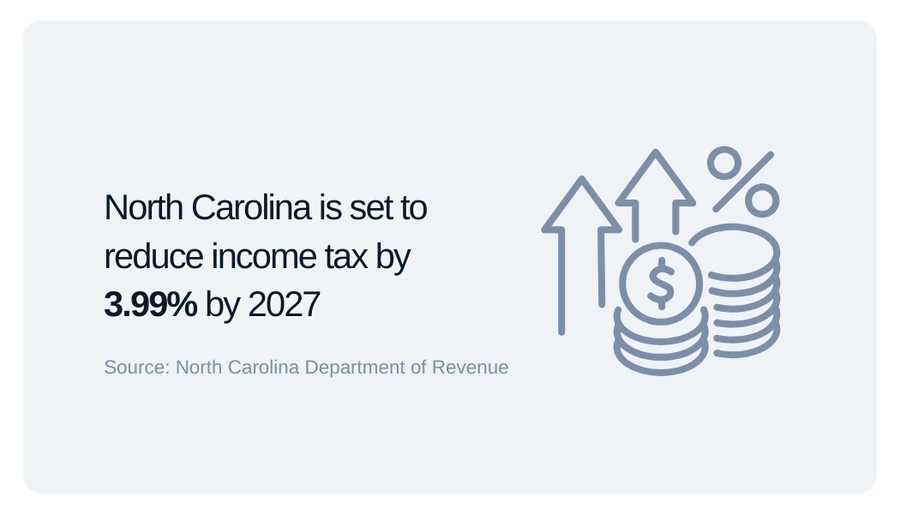
Taxes are a big motivator for many people looking to relocate. Here are some important things to know about the taxes in Raleigh if you’re thinking about making the move:
-
Sales tax in Wake County is 7.25%.
-
Property tax in Wake County is 0.51% in 2025
-
Income tax in North Carolina is 4.50%.
-
Income tax in North Carolina is set to reduce to 3.99% by 2027.
-
There’s no capital gains tax in North Carolina.
-
There’s no inheritance or estate tax in North Carolina.
Compared to national tax rate averages, this means that:
-
Wake County’s property tax rate is below average.
-
North Carolina’s income tax rate is below average since the national rate is 14.5%.
-
Wake County’s sales tax rate is above average.
The sales tax rate might be alarming to some prospective buyers. Keep in mind that five states in the U.S. have a 0% sales tax rate, which significantly reduces the national average rate.
Utilities
Water, gas, electricity, and waste management are often overlooked fees when you’re looking to move to a new city. Raleigh has a mix of private and public utility providers based on the type of service.
Electricity
For electricity in Raleigh, there are various state-regulated private providers to choose from. According to EnergySage, the average Raleigh electric bill is about $225 per month, which is 3% higher than the national average.
To help keep energy costs down, there are a lot of simple eco-friendly swaps you can make to save money, such as switching to energy-efficient light bulbs.
Gas
Enbridge Gas provides natural gas for the Raleigh area, billing based on how many “therms” of gas a resident uses. A therm is the amount of gas needed to raise the temperature of one pound of water by 1 degree Fahrenheit.
As of March 2025, Enbridge Gas charges Raleigh residents:
-
A $10 facilities charge per month
-
$1.17 per therm from November to April
-
$1.08 per therm from May to October
The national average price per therm is $1.60, but the actual price will vary by location.
Water
The City of Raleigh provides water within city limits. They have a calculator on their website that estimates water usage based on weekly showers in your household. Raleigh bills your water based on usage tiers.
There is also a watershed protection fee that costs $0.11 per 748 gallons of water. This fee helps fund the Upper Neuse Clean Water Initiative, improvements to the treatment system for drinking water, and protective restoration projects.
Waste Management
The City of Raleigh also provides garbage, recycling, and sewer services. As of April 16, 2025, the recycling fee for residential units is $4.80 per month, and the garbage pickup fee is $13.70 per month.
Health Care
According to a study from the Centers for Medicare and Medicaid Services, North Carolina residents spend an average of $8,230 per person on personal health care each year compared the the national average of $14,570.
A pre-pandemic health care spending analysis from Duke University, the Health Care Cost Institute (HCCI), and Blue Cross and Blue Shield of North Carolina analyzed health spend trends across North Carolina. This analysis found:
-
Health spending in Wake County is the lowest in North Carolina at $7,303 per year.
-
In North Carolina, the average person spends $8,230 per year on health care.
-
Most people in Wake County use employer-sponsored insurance (ESI), followed by Medicaid, Medicare FFS, and Medicare Advantage.
-
The Wake County population uses ESI and Medicare FFS at a higher rate than the statewide population.
-
The Wake County population uses Medicaid and Medicare Advantage at a lower rate than the statewide population.
Food
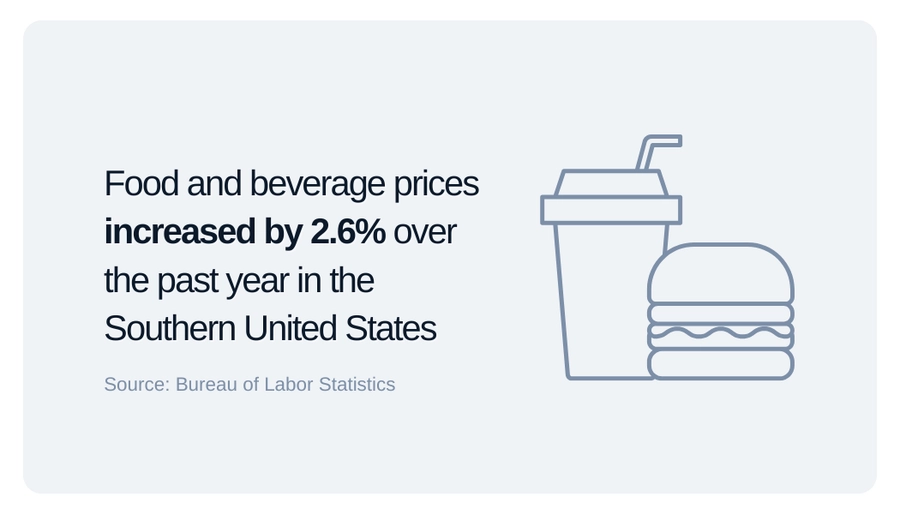 Raleigh is a great city for foodies, with hidden gems and top-rated restaurants. But how much will tasting your way through the city cost you? According to The BLS, pricing for all food and beverages increased by 2.6% over the past year in the Southern United States in 2025.
Raleigh is a great city for foodies, with hidden gems and top-rated restaurants. But how much will tasting your way through the city cost you? According to The BLS, pricing for all food and beverages increased by 2.6% over the past year in the Southern United States in 2025.
Broken down, prices have increased:
-
0.1% for food at home in March 2025
-
3.5% for food away from home over the past year
-
1.0% for meat, poultry, fish, and eggs over the month
On the other hand, at a national level, the price of food increased by 0.4% in March 2025. Broken down, prices in the United States have increased:
- 0.5% for food at home in March 2025
- 0.4% for food away from home
- 1.3% for meat, poultry, fish, and eggs over the month
Transportation.png)
The Raleigh public transportation system, GoRaleigh, provides bus service throughout the city. You can check the transit map to determine which route you should take. This will greatly cut down on the commuting times in Raleigh.
As of 2025, the fare for GoRaleigh is normally:
-
$1.25 for adults
-
$0.60 for Medicare card users
-
$0.60 for people with disabilities
GoRaleigh is always free for riders who fit the following criteria:
-
Age 65 or older with a GoRaleigh ID card
-
Ages 13-18 with a Youth GoPass
-
Ages 12 or younger without ID, unless taller than 60 inches
Many cities nationwide reduced fares during 2020 due to COVID-19. However, the national average price of a public transit ride in 2020 was still $0.27 more than a full-price GoRaleigh ride. According to the U.S. Department of Transportation, public transit costs increased by 19.9% in 2022, so it’s a major advantage to have affordable transportation in Raleigh.
If you opt to use a car, gas prices are about 9.1% lower in Raleigh.
FAQ
Is it expensive to live in Raleigh?
The cost of living is rising everywhere, including Raleigh. However, Raleigh is less expensive than the average American city, and there are plenty of low-cost or free things to do year-round.
What’s the average wage in Raleigh NC?
According to the Bureau of Labor Statistics, the average hourly wage in Raleigh is $31.84, compared to the United States average of $31.48.
What salary do I need to live in Raleigh?
There are many factors that affect what salary you need to live comfortably in Raleigh depending on your habits and lifestyle choices. The median income in Raleigh is $49,948 per person.
Find Your Dream Home in Raleigh
There are several factors to consider when determining your cost of living in Raleigh, like utilities, taxes, and more. When you can estimate your cost of living, you can make better decisions on where to buy your home. And, if you are looking for educational opportunities, you are in luck here.
Raleigh Realty can help you find your next home in the perfect neighborhood so you can feel confident in your move to Raleigh.
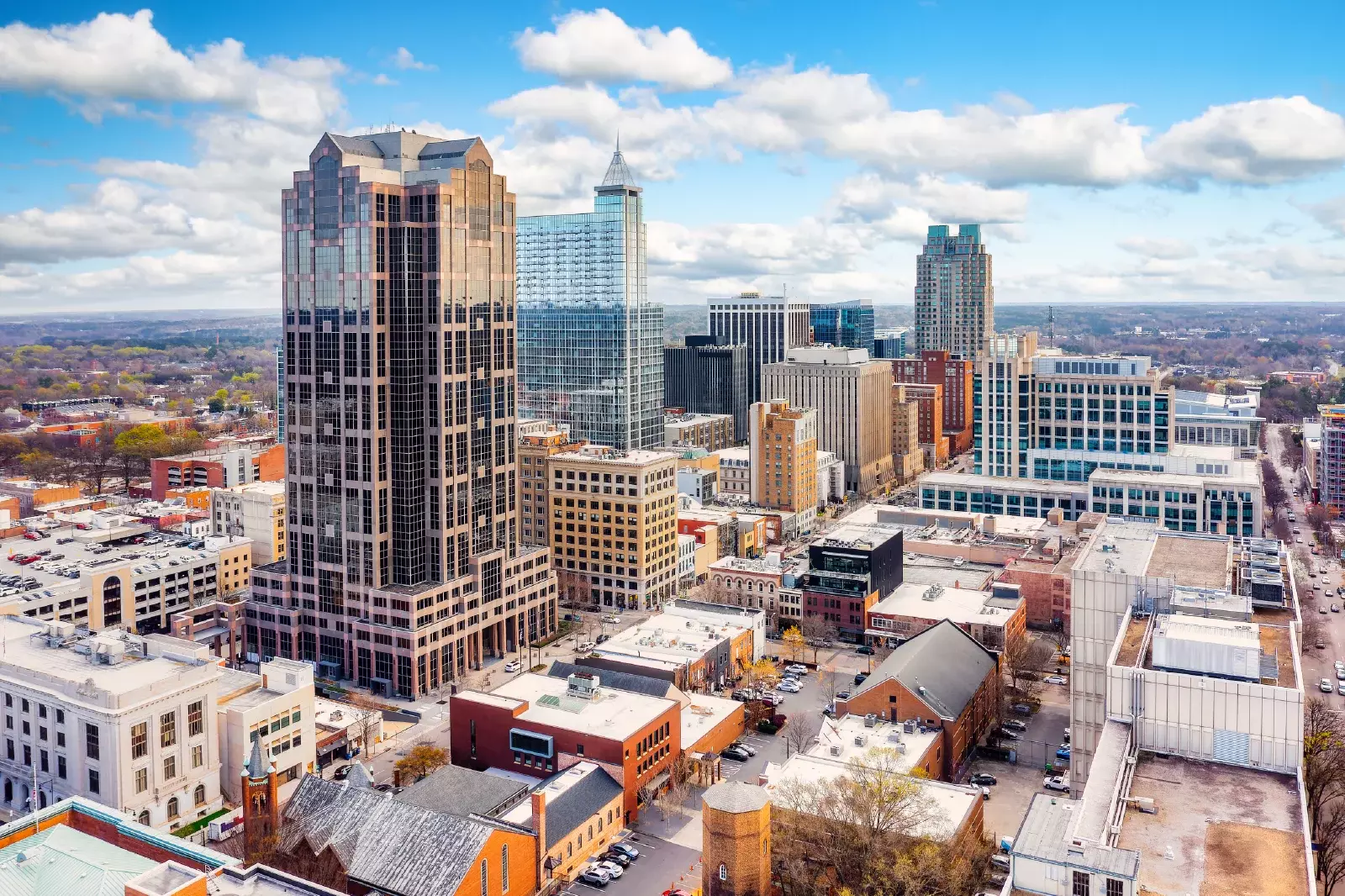
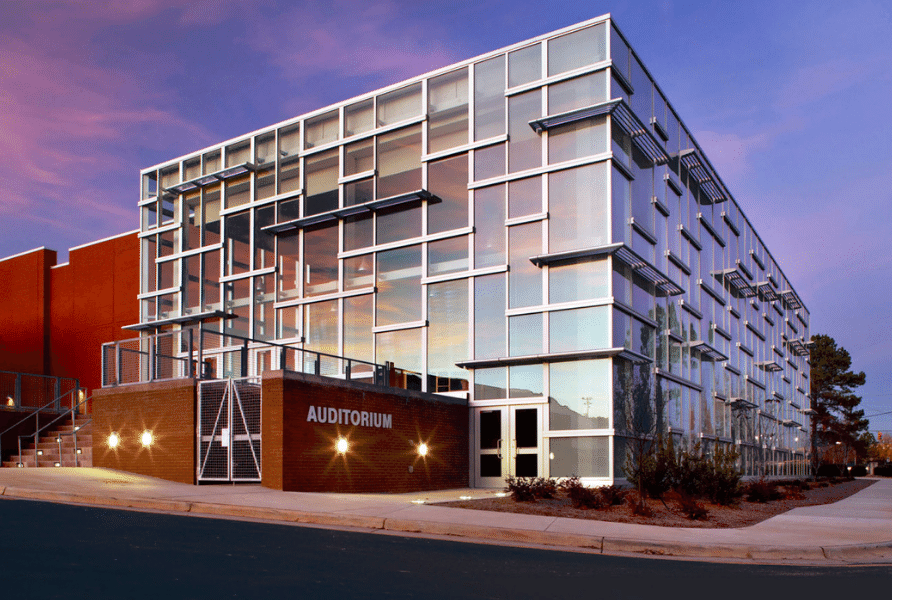
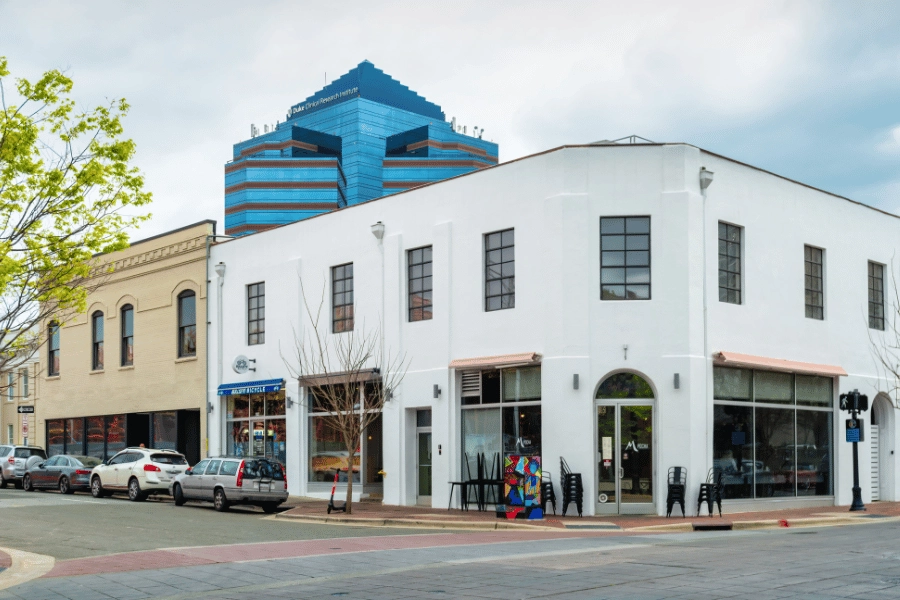
![What is the Cost of Living in North Carolina? [2025]](https://raleighrealty.com/rr-images/uploads/blogs/1748545345576-959574666-NC Cost of Living.png)
